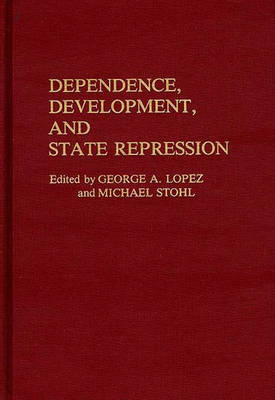Although the repressive violence of governments against their own citizens has received some scholarly attention in the past decade, our understanding of this phenomenon is far from complete. At least one central question remains: To what extent is government repression a function of a nation's political or economic development situation? This volume addresses the question through case studies of repressive regimes in second and third world nations. Of interest both for the study of repression and the analysis of development processes, it examines the links between development, dependence, and state repression in a variety of political and cultural settings.
Individual essays examine repression and development in specific countries in Central and South America, Africa, Asia, and Europe. Regimes as diverse as Marcos' Philippines and Communist Poland are considered. The analyses focus on a wide rrange of topics, including strikes against transnational corporations, the relation between political development and martial law, economic choices as a function of military-security dependence, the new international division of labor, and state violence in agriculturally modernizing nations. While deomonstrating that repression is interwoven with local culture and the perceived options of local elites, this book provides clear evidence of the links between repression and the larger economic and political factors that bind states together in international affairs. Written by a distinguished group of specialists in contemporary political economy, it offers new insights and information of interest to scholars, students, and agency officials. It also provides an agenda for further research in this controversial and vitally important area.
- ISBN10 031325298X
- ISBN13 9780313252983
- Publish Date 26 June 1989
- Publish Status Active
- Publish Country US
- Publisher ABC-CLIO
- Imprint Praeger Publishers Inc
- Format Hardcover
- Pages 286
- Language English
